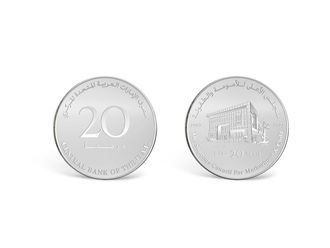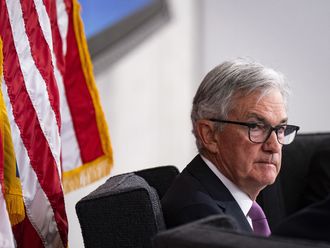Abu Dhabi: Standard Chartered on Monday said its exposure to UAE entities accounted for $10 billion (Dh36.8 billion) of the $14 billion value of its Middle East and South Asia (MESA) corporate loan portfolio. However, it assured investors that it did not expect "material losses."
"Certain high profile entities within this portfolio have experienced stress," the bank said in its annual earnings release.
"Our exposure to these entities is around $500 million. The resolution process is ongoing, but in the event losses arise, we do not expect they would be material."
Equity boost
The news, along with the announcement of a $3.4 billion (Dh12.4 billion) net profit which met analyst expectations, helped boost the lender's stock by more than 5 per cent to £16.71 on the London Stock Exchange in the final two hours of trading yesterday.
The result marked a 4.3 per cent increase and the seventh consecutive year of record annual profit, the bank said, thanks to a 9 per cent increase in revenue to $15.2 billion.
Provisioning against non-performing assets increased from $1.3 billion to $2 billion during the year, but was significantly less in the second half, according to the earnings statement.
Standard Chartered is one of three British-based banks discussing a $22 billion financial restructuring deal with Dubai World. Dubai World has said it intends to have a formal proposal ready by the end of this month.
On the consumer banking side, the bank said it increased its net impairment charge for the MESA region by 26 per cent to $217 million.
This was largely due mainly to the deterioration in the UAE's economy in the past year, rendering consumers jobless and thus unable to meet their mortgage and credit card payments.
Still, Shayne Nelson, Standard Chartered Middle East and North Africa regional chief executive, said the bank was counting on regional recovery.
"Standard Chartered has seen strong revenue growth across the Middle East," Shayne said in a statement.
"Despite the global econ-omic slowdown, we have remained open for business for our customers and continued to support them. We are seeing signs of improving macroeconomic data across our markets."












